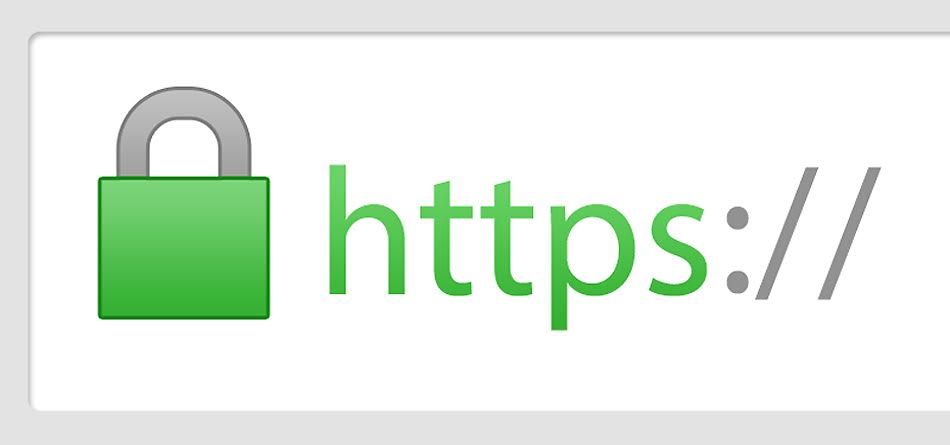As an entrepreneur, it’s perfectly understandable to devote the bulk of your time and resources into managing the business. But you have to remember that all external elements, particularly your website, are a powerful tool in your online marketing arsenal, which, in the modern context, is as good a marketing strategy as any.
In the business-customer relationship, concepts like “trust” and “security” can point to one thing: safety. Your ability to provide your customers with security when they’re placing an order and sharing personal information, for example, boosts customer trust, and in the context of SEO, the search engine’s trust.
How?
To answer this, we’ll talk about encryption and how it plays into your website’s security. If you’re in the e-commerce industry, the following rules especially apply to you.
Learn the Basics: HTTP vs HTTPS
Hypertext Transfer Protocol (HTTP) is the way a server communicates with browsers, like Google Chrome, Internet Explorer and Mozilla Firefox. Simply, HTTP lets visitors view a website and send information back to the server.
It’s an “application layer protocol”, meaning its concern is how information is presented to the user (what the data look like), but not the manner in which it arrives at its destination. It also doesn’t remember previous web sessions. The advantage is because there’s fewer data to send, things work faster.
In simple terms, Hypertext Transfer Protocol Secure (HTTPS) is the “secure HTTP”. HTTPS was developed to allow the exchange of confidential information and prevent unauthorized access. It’s similar to HTTP in that it follows the same basic protocols, but HTTPS adds an extra layer of security with Secure Sockets Layer (SSL) to move data safely.
By default, it uses TCP Port 443, making HTTP and HTTPS two separate communications. For this reason, HTTP offers the distinct benefit of both: caring about how data are presented while using SSL to transport data from Point A to Point B.
Google’s Favor on Security
If your e-commerce site is running credit card transactions, it’s imperative to protect it with HTTPS. Security is a big concern for Google, and it shouldn’t come as a surprise that it favors certified and trusted websites. HTTPS guarantees that the site will encrypt their information, hence preventing any third-party eavesdroppers.
In 2014, HTTPs was a “lightweight” ranking signal, affecting less than 1% of queries all over the world. “But we may decide to strengthen it,” said Google, “because we’d like to encourage all website owners to switch from HTTP to HTTPS to keep everyone safe on the web.”
Two years later, HTTPS is one of Google’s ranking factors. Beyond the graces of search engines, switching to HTTPS has benefits that can work for all types of websites, especially government sites. According to a blog published on the US Government’s website, here are the three key benefits of HTTPS:
- A Secure connection
- A Private connection
- A Fast connection
It’s especially advantageous for e-commerce site owners if your visitors can identity between HTTP and HTTPS. A HTTPS-URL enhances your site’s credibility, allowing customers to buy with confidence.
Switching to HTTPS: What to Consider
From an SEO perspective, there are some factors you should be mindful of when migrating to HTTPS. First, make sure all your internal and external links point to the new HTTPS URLs. If you’re still receiving backlinks to the HTTP version, Google would see two different websites and won’t recognize the new version of the page accordingly. Google would also have trouble determining the more authoritative page that deserves a higher ranking.
Moreover, you have to make sure that all rel=canonical tags point to the new HTTPS URLs to help Google determine which version of the page to rank. Map out the new HTTPS URLs page by page. If you want to maintain the original URL structure, make sure that only thing changing is http:// – now https://.
Google also recommends using a server-side 301 redirect to ensure that the users and the search engines are directed to the right page. A 301 status code means you’ve permanently moved to a new location.
In essence, HTTP offers security and privacy among other SEO benefits, including referrer data and the most obvious one – increased rankings. HTTPS guarantees the users that they’re accessing the right website, and encrypts all communication, including URLs that protect information like credit card numbers and browsing history.
Looking at its overall benefits and considering the current algorithm, we recommend switching over to HTTPS to stay on top of your SEO efforts.
If you need any help with your website, feel free to get in touch with the experts. Contact Spike Interactive today.


